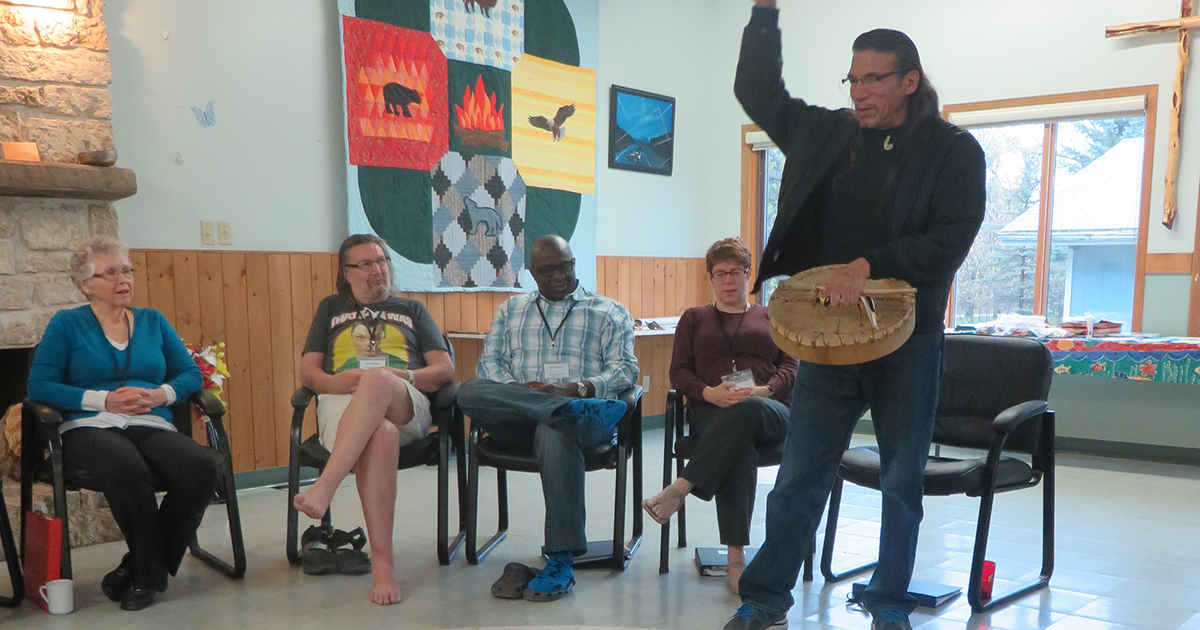As British Columbia and Quebec join the growing list of locations hosting the Deepening Understanding for Intercultural Ministry (DUIM) program, Anglicans across Canada are invited to broaden their horizons and perspectives of ministry.
Organized by the Canadian Churches Forum for Global Ministries (CCFGM), DUIM is a five-day ecumenical gathering that offers clergy and lay leaders the tools to engage in ministry crossing cultural boundaries within their own context. Through conversations, workshops, and lectures by guest speakers, participants learn about theoretical aspects of cultural difference and practical guidelines to apply them to ministry.
Registration is still open for the fall 2016 DUIM program, which will take place in Vancouver, B.C. and runs from Oct. 17-21. With a limit of 20 participants, registration is available on a first-come, first-served basis. The deadline for registration at the Vancouver event is Monday, Sept. 19.
Further programs will take place throughout 2017 in Saskatoon, Sask. (Jan. 16-20), Beausejour, Man. (May 8-12), Toronto, Ont. (June), Montreal, Que. (Sept. 25-29), and Peterborough, Ont. (date to be determined). CCGFM director and DUIM facilitator Jonathan Schmidt noted that the Quebec setting will bring a “very different sense of what’s dominant and not dominant culture” due to its French language and culture.
Since its inception in 2013, DUIM has steadily grown in prominence as Anglicans and members of other denominations learn how to bridge cultural barriers in a variety of contexts—from increasingly multicultural cities to reconciliation between Indigenous and non-Indigenous people to ministry abroad.
“Just about every parish in Canada has a sign out front that says ‘Everyone is welcome,’ but there are ways, often unconscious, that we aren’t welcoming places,” Schmidt said. “So a real benefit of the program is to really look at who we are and how we keep people outside, and how we can better invite people into our communities.”
Growing Anglican support
Ministries of the Anglican Church of Canada have expressed solidarity with the aims of DUIM through financial support and increasing integration into their own work.
Global Relations, which played a key role in developing forum programs including DUIM and retains a budget to support Anglican participation, provides a bursary to help Anglicans who require financial assistance to attend.
“We see [DUIM] as really for a small but growing group of people in the church who work in a whole variety [of environments]—chaplaincies, downtown core ministries, private schools, hospitals—where the context is really often quite secular [and] very multicultural,” director Andrea Mann said.
“These programs are an opportunity to meet with other people doing similar work, which can sometimes be isolating,” she added. “It’s an opportunity for people to share their experiences, tell stories, and learn through the experience and work of other people.”
In the future, Global Relations intends to work more intentionally with Anglican DUIM alumni to provide support for their development as an effective network to serve a resource for the church. They also plan to encourage further leadership training in intercultural ministry through programs such as Engage Others and Learning for International Faith Engagement, or L.I.F.E.
Faith, Worship, and Ministry has also allocated funds to support DUIM, with director Eileen Scully expressing her intention to further integrate the program into other work such as ministry development and leadership development formation.
“You can’t claim to be a universal expression of the church if you leave out the perspectives of two-thirds of the world … You can’t claim to be a global expression of the church if you are unilingual, or only just bilingual … and if you’re colonial,” Scully said.
Positive experiences
Archdeacon Lon Towstego of the Diocese of British Columbia attended DUIM almost four years ago and described a ‘very positive’ experience, during which he learned about cultural differences related to liturgical practice, belief systems, worship styles, and interpretation of the Bible.
“It deepened my realization that partnership is the key word, and that partnership is always two ways,” said Archdeacon Towstego. As co-chair of the Relationship Matters Committee, he has since furthered work in his diocese towards decolonization of the church and deepening and furthering relationships with First Nations.
Lay facilitator Marie-Louise Ternier-Gommers, who attended DUIM last January in the Diocese of Saskatoon, appreciated the event’s diversity in terms of the wide variety of Christian traditions and ethnic backgrounds represented. She referred to the First Nations elements of the program as “particularly moving and instructive.”
“If there was ever a mission for the Christian churches in today’s conflict-ridden world, it is to help us all to learn to welcome and embrace the one who is different as we are all children of the one God,” Ternier-Gommers said.
“The DUIM course, with its sensitively integrated and local approach, challenges persons of faith to choose listening before judging, sharing before walking away, receiving before dismissing, and loving before condemning. If we can help one another learn to do this a bit more each day, maybe we will live into a renewed relationship, both with God and with one another in all the complexities and diversity of this broken yet beautiful world God has created.”
Registration for DUIM is available online or by contacting Andrea Mann.
Interested in keeping up-to-date on news, opinion, events and resources from the Anglican Church of Canada? Sign up for our email alerts .

